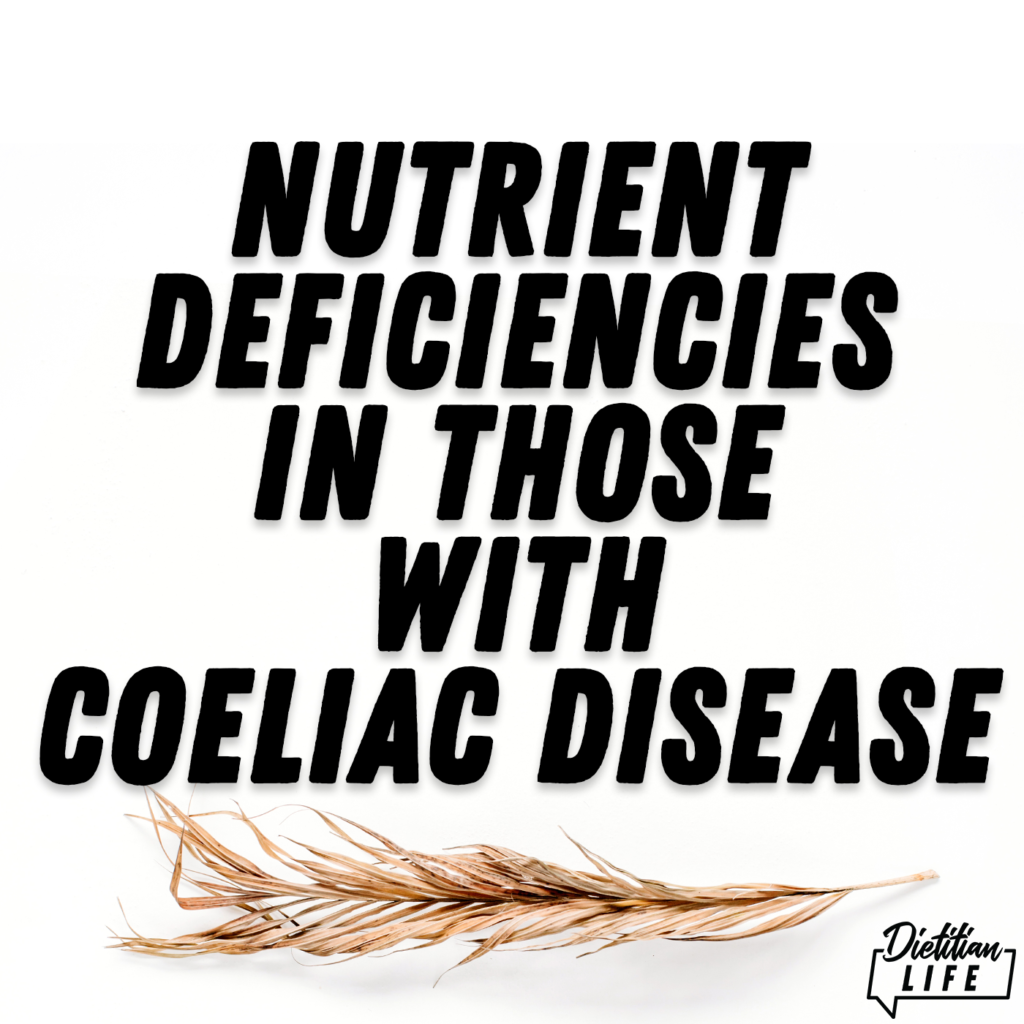Kreutz et al (2020), ‘Narrative Review: Nutrient Deficiencies in Adults and Children with Treated and Untreated Celiac Disease’, Nutrients, 12(2): 500
A new review article has been published this year examining the common nutrient deficiencies present upon diagnosis with coeliac disease and those persisting at follow up after commencement of a gluten-free diet.
Nutrient deficiencies are common upon diagnosis with coeliac disease largely due to impaired absorption at the small intestine but also due in part to common inadequacies in the diet. If left untreated, these deficiencies can lead to the development of anaemia, osteoporosis and depression.
Typically, deficiencies of iron, calcium, folic acid, zinc, vitamin D and vitamin B12 can present at diagnosis, but at 2 years follow up after commencement of a strict gluten-free diet these are not always fully restored. This may indicate that either full repair of the small intestinal lining can be a slower process in some individuals (especially in older adults) and/or the nutrient quality of a gluten-free diet is suboptimal. For example, iron and zinc deficiencies can often persist after the commencement of a gluten-free diet, with the emergence of vitamin B6 deficiencies. If we consider popular gluten-free products on the market, they tend to be less nutritious than their gluten-containing counterparts (lower in iron, zinc, B group vitamins, iodine and fibre).
Based on these findings, as dietitians, we should be not only educating our clients with newly diagnosed coeliac disease on how to follow a gluten-free diet but also how to optimise the nutritional quality of that diet with a particular focus on the inclusion of gluten-free foods that are high in iron, zinc and B group vitamins. We should also be advocating for our clients to be screened for common nutrient deficiencies at the time of diagnosis with coeliac disease as well as a follow up after the commencement of a gluten-free diet.
Click here for the original publication.
Want to learn more? Get started with a FREE Dietitian Life membership to get exclusive access to the huge library of clinical advice, and practical dietetic resources. Stay tuned for the next research spotlight!

